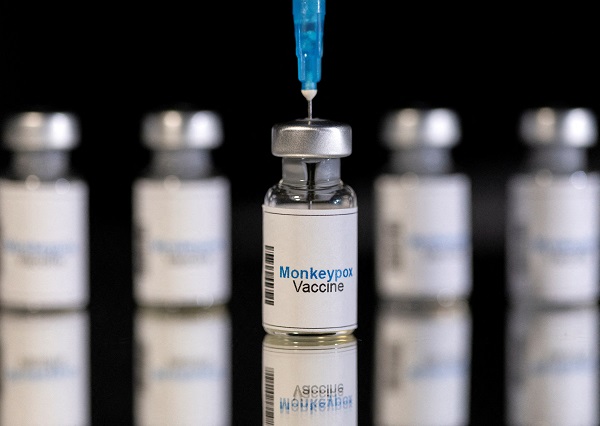
Governments and donors have pledged approximately $1 billion to tackle Africa’s ongoing Mpox outbreak, with the United States committing $5 million, according to the Africa Centres for Disease Control and Prevention (Africa CDC).
However, the response faces significant challenges due to inadequate surveillance, limited testing and poor contact tracing.
During a media briefing on Friday, director-general of Africa CDC, Dr. Jean Kaseya emphasised the urgent need for improved monitoring and understanding of the virus’s transmission. He revealed that fewer than 4 per cent of contacts were being traced, which complicates efforts to contain the virus.
“Africa CDC and the World Health Organization (WHO) are leading the continental response. Plans are underway to meet U.S. health secretary, Xavier Becerra to discuss how the U.S. funds will be allocated,” Kaseya said.
He added that the pledged funds would support critical areas such as training frontline health workers, strengthening disease surveillance, providing laboratory diagnostic supplies, clinical case management, risk communication and research.
In addition to financial pledges, vaccine donations have reached 4.3 million doses, with Japan committing 3 million doses to the Democratic Republic of Congo (DRC), the epicentre of the outbreak. The U.S. has also pledged 1 million doses this week. However, vaccine distribution remains slow, with only a fraction of the doses arriving on the continent.
Kaseya noted that the DRC plans to begin vaccinations next week, but logistical challenges, including poor infrastructure and ongoing armed conflicts, are expected to hinder the effort. He also raised concerns about the risk of cross-border transmission, particularly through truck drivers, who have historically played a role in the spread of HIV across the continent.
“Uganda, which has reported 212 suspected Mpox cases, is a key area of concern due to the high volume of cross-border movement with neighbouring countries,” Kaseya said. He also questioned Tanzania’s lack of reported cases, suggesting the country may not be Mpox-free given its proximity to affected regions.
He called for an increase in community health workers to improve surveillance efforts, announcing plans to deploy 40,000 community networkers in the DRC. Kaseya also highlighted the international focus on Mpox ‘Clade II’, prevalent in Europe and the U.S., which has overshadowed ‘Clade I’, more common in Africa. He warned that ‘Clade I’ has since mutated into the more infectious and deadly Clade Ib, for which there is no rapid diagnostic test.
“We do not fully understand the epidemiology of Mpox and its transmission dynamics. There is an urgent need to address research gaps,” Kaseya stated. Immediate priorities, according to him, include enhancing surveillance, contact tracing and laboratory testing.
Chief of staff at Africa CDC, Dr. Ngashi Ngongo outlined that priority groups for vaccination include healthcare workers, close contacts of confirmed cases and key populations such as commercial sex workers, men who have sex with men, children and individuals with weakened immune systems, including those living with HIV.
Ngongo also expressed concern that many cases were not being linked to others due to weak contact tracing, with health workers tracing only around 3 per cent of contacts. He noted that community health workers had not been fully integrated into the response, further weakening the ability to track the virus’s spread.
Reports from Science Nigeria indicate that 15 African countries have reported Mpox cases this year, with another 15 countries considered vulnerable. In the past week, 2,910 new cases have been reported, but only 436 have been confirmed due to limited laboratory capacity.
Since the beginning of the year, over 32,000 suspected cases have been reported, yet fewer than one-fifth have been confirmed, highlighting significant weaknesses in surveillance and testing infrastructure. While Mpox has been endemic in central and west Africa for decades, this year’s outbreak has raised concerns due to the spread of ‘Clade Ib’ through all types of sexual and close physical contact, leading to infections and deaths, particularly among children.

